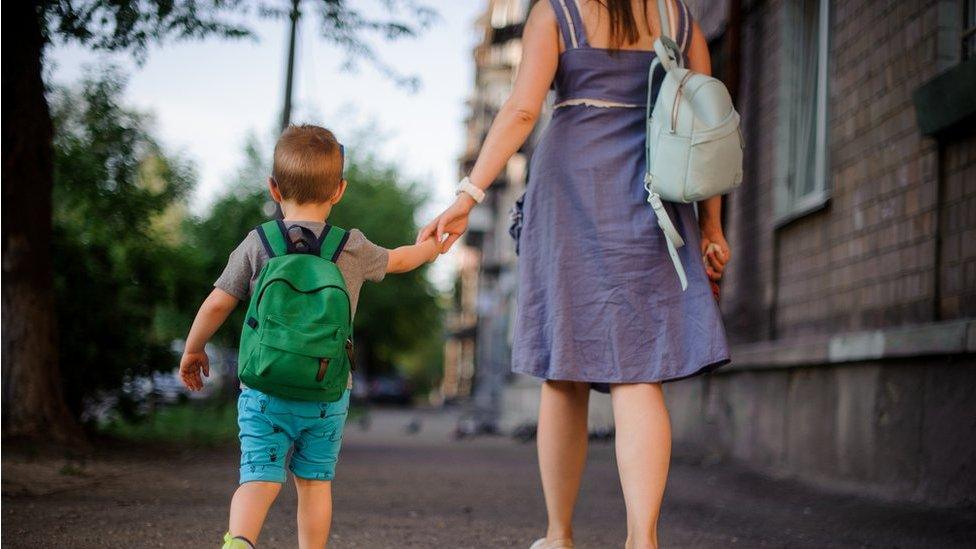Sunderland Christian foster service 'must allow gay carers'
- Published

Cornerstone (North East) Adoption and Fostering Service only uses evangelical Christian carers
An evangelical Christian fostering service must allow gay parents to sign up as carers, a judge has ruled.
Cornerstone (North East) Adoption and Fostering Service launched a High Court challenge against Ofsted after inspectors deemed its policies discriminatory and lowered its rating.
The Sunderland-based agency was criticised for only welcoming married heterosexuals as foster carers.
Cornerstone said it would "prayerfully" consider the findings.
After an inspection in 2019, Ofsted downgraded Cornerstone from "good" to "requires improvement" because of the charity's policy on recruiting carers.
Mr Justice Julian Knowles said the fostering service was legally allowed to recruit based on its religious ethos, but its policy of requiring "applicants to refrain from homosexual conduct" was unlawful.
"The law requires Cornerstone to accept gay men and lesbian women as potential foster carers," the judge said.
"It hardly needs be said, but I categorically reject any suggestion that gay men and lesbians cannot make wonderfully loving foster and adoptive parents whether they are single or in same-sex partnerships."
He concluded Cornerstone "must change its recruitment policy" to allow homosexual carers to become "prospective foster parents and it cannot lawfully refuse to do so".
'Saddened'
Cornerstone welcomed the judge's finding that the service could exclusively recruit evangelical Christians, but said it would consider appealing the "sexual conduct ruling".
Cornerstone's chairwoman, Rev Sheila Bamber, said: "Our right to support Christian families in providing the best possible outcomes for vulnerable children and young people has been upheld.
"But I am saddened that the fundamental place of biblically based Christian marriage in our beliefs has not been recognised.
"We will carefully and prayerfully consider how to continue our vocation and work to create forever families."
Amanda Spielman, Ofsted's chief inspector, said she was pleased with the outcome which "offers much needed clarity in what is a difficult, complex area of law".
Cornerstone began in 1999 and at the time of the hearing had 14 approved households across north-east and north-west England, Cumbria, North and South Yorkshire and the Humber area.
The charity says it specialises in finding "forever homes" for "hard to place" children, with 80% of its youngsters being adopted by their foster carers.

Follow BBC North East & Cumbria on Twitter, external, Facebook, external and Instagram, external. Send your story ideas to northeastandcumbria@bbc.co.uk, external.
- Published6 May 2020
